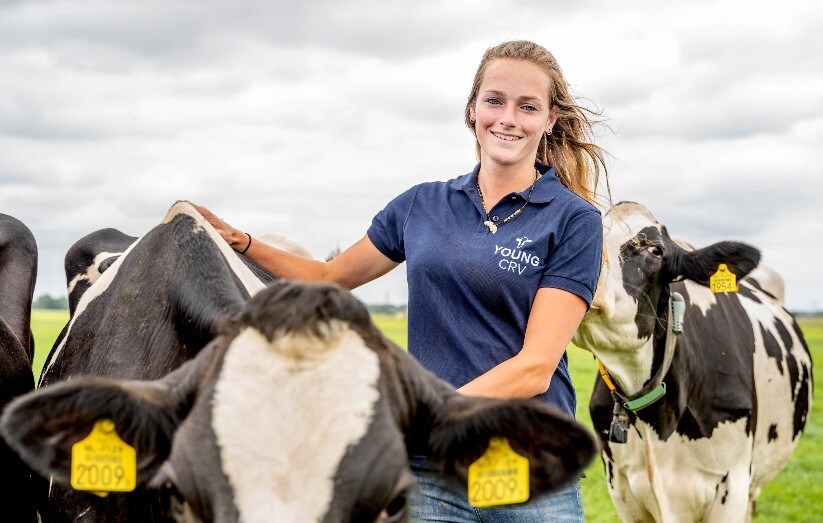‘I feel I’m at my best when I’m surrounded by cows’
‘My dad Herrold and I are working towards fine-tuning our farm. I’ve been in a partnership with him for three years now and it’s going well. Ever since I was young, I’ve wanted to take over the farm, because cows have a calming influence on me and I feel I’m at my best when I’m surrounded by them. I couldn’t imagine doing anything else, even though the government isn’t exactly a source of motivation at the moment. But still, I'm looking forward to what we can achieve on the farm.’
Breeding problem-free cows
‘In the future, I want to work more efficiently and in a more sustainable way. I hope to achieve that with my dad, who, all being well, will be around for quite a few more years yet. And to make the work easier, so that I can do it on my own if need be. But what I’m really interested in is breeding.’
‘My goal is to breed a problem-free cow. I think that’s what everybody wants in the end; a herd without many problems and with a high lifespan. I think our herd is doing quite well at the moment, but, if you ask me, over the last few years there’s been a bit too much focus on litres in breeding. That will have to change a bit, because I believe that a good cow is a well-balanced cow. Producing 9,600 kg of milk is great and also important, but now we also focus more on conformation, so that the cow can continue to produce. The most common reasons for culling are now conformation-related problems, for example with hooves or legs. That’s something I want to work on.’
Anxiety due to lack of clarity
‘But at the moment it’s very difficult to come up with ideas for the future. We don’t have any major expansion plans in the pipeline, but the current lack of clarity about laws and regulations is making us anxious to see if we can even continue with the hundred cows we have now. I’m confident that we’ll be able to adapt if necessary, but we shouldn’t have to keep doing that over and over again. And we should be compensated for it in some way. A lot is being thrown at us: the nitrogen issue, but also uncertainty about derogation. I’d be lying if I said that I’m totally confident that everything will work out fine, but my hope and passion for the farm is still there, and it always will be. That’s what keeps me going, and I think that’s the same for many people.’

